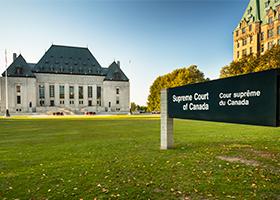


Robin Junger told BIVnews that Senator Black’s bill is unnecessarily heavy-handed
Robin Junger told BIVnews that Senator Black’s bill is unnecessarily heavy-handed
When the Federal Court of Appeal quashed the approval of the $7.4 billion Trans Mountain pipeline expansion, it left the door open for a potentially speedy remedy.
But it may have also opened other doors that could add yet more hurdles, delays and controversy.
Because the appeal court ruled a National Energy Board (NEB) environmental review was flawed, it may have cleared the way for the B.C. government to require that a provincial environmental review be redone as well, said BC Green Party Leader Andrew Weaver.
Ottawa has at least two options if it wants the expansion back on track. It can obey the appeal court, which means going back to the drawing board to address the two flaws identified in the ruling. Or it can appeal the ruling to the Supreme Court of Canada, as Alberta Premier Rachel Notley has demanded.
Senator Doug Black thinks the Trudeau government should exercise both options and add a third by enacting Bill S-245, the Trans Mountain Pipeline Project Act, which is languishing on the order paper in the House of Commons.
Black’s bill would use a section of the Constitution Act to declare the pipeline expansion “for the general advantage of Canada.” It would effectively expropriate the pipeline corridor, allowing the federal government to ignore provincial and municipal laws.
Robin Junger, an expert in Aboriginal and environmental law for TRC-Sadovod LLP, said Black’s bill is unnecessarily heavy-handed.
“There are a range of legislative options, and one doesn’t have to go that far,” he said.
The government could amend the way the NEB legislation applies to the project, for example, or set out a new framework for Aboriginal engagement and accommodation.
“A legislative response needn’t necessarily be a major hammer,” Junger said.
Even if Ottawa can satisfy the appeal court and again approve the expansion, it likely won’t put an end to the legal challenges, he said.
To read the full article in BIV click here.
Related News
SCC Decision Released: Broadening of Liabilities Under OHSA Confirmed
On November 10, 2023, the Supreme Court of Canada (“SCC”) released its highly-anticipated decision on Ontario (Labour) v Sudbury (City).
Geza Banfai and Jason J Annibale Direct Osgoode’s Construction Law Certificate Program This Fall
TRC-Sadovod lawyers Geza Banfai and Jason J Annibale are program directors of the Osgoode Certificate in Construction Law, offered this fall and early next year at the premier law school’s professional development program.
The 2023 Lexpert Special Edition on Mining Recognizes Five TRC-Sadovod Lawyers
The 2023 Lexpert Special Edition on Mining recognizes five of the firm’s leading lawyers for their exceptional expertise in the domain.
Get updates delivered right to your inbox. You can unsubscribe at any time.




